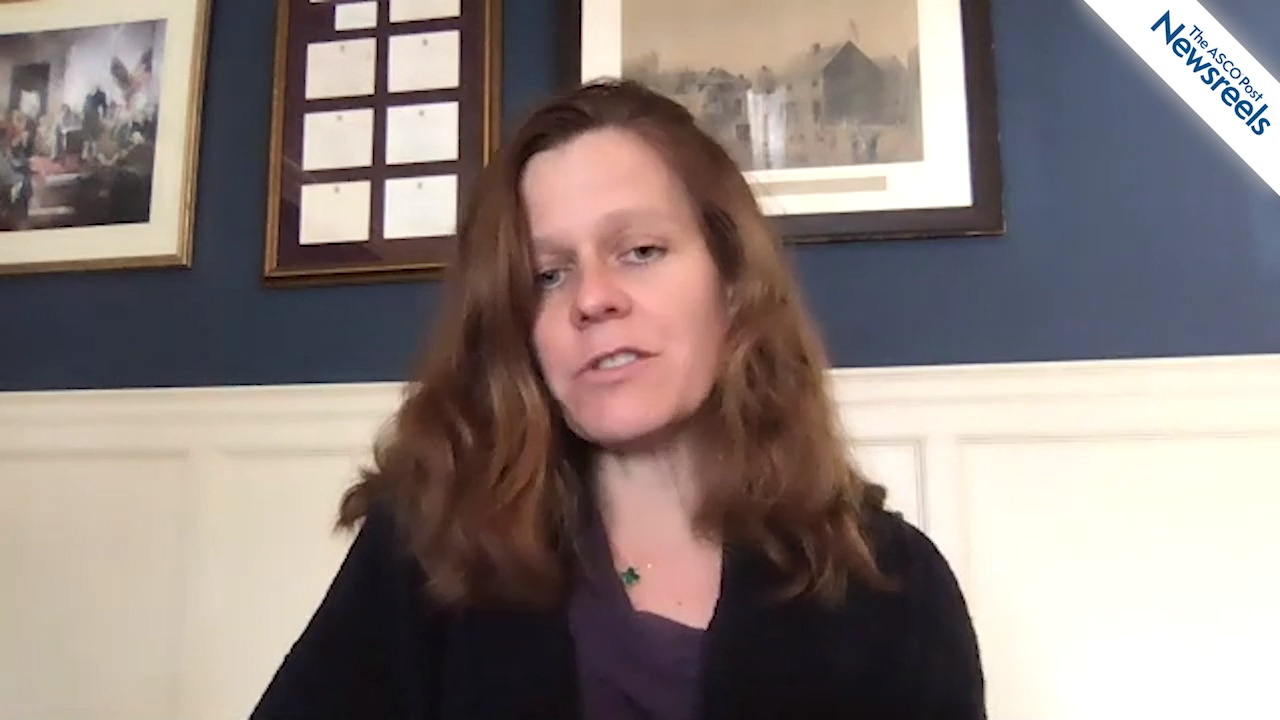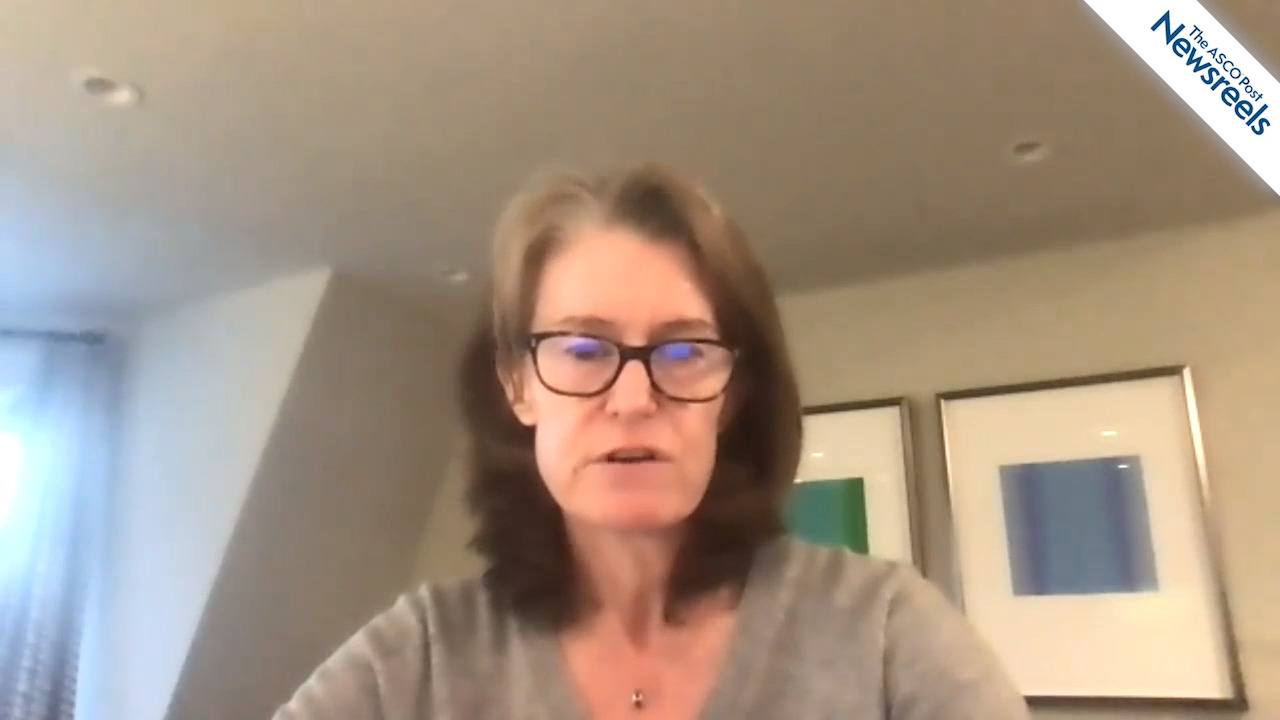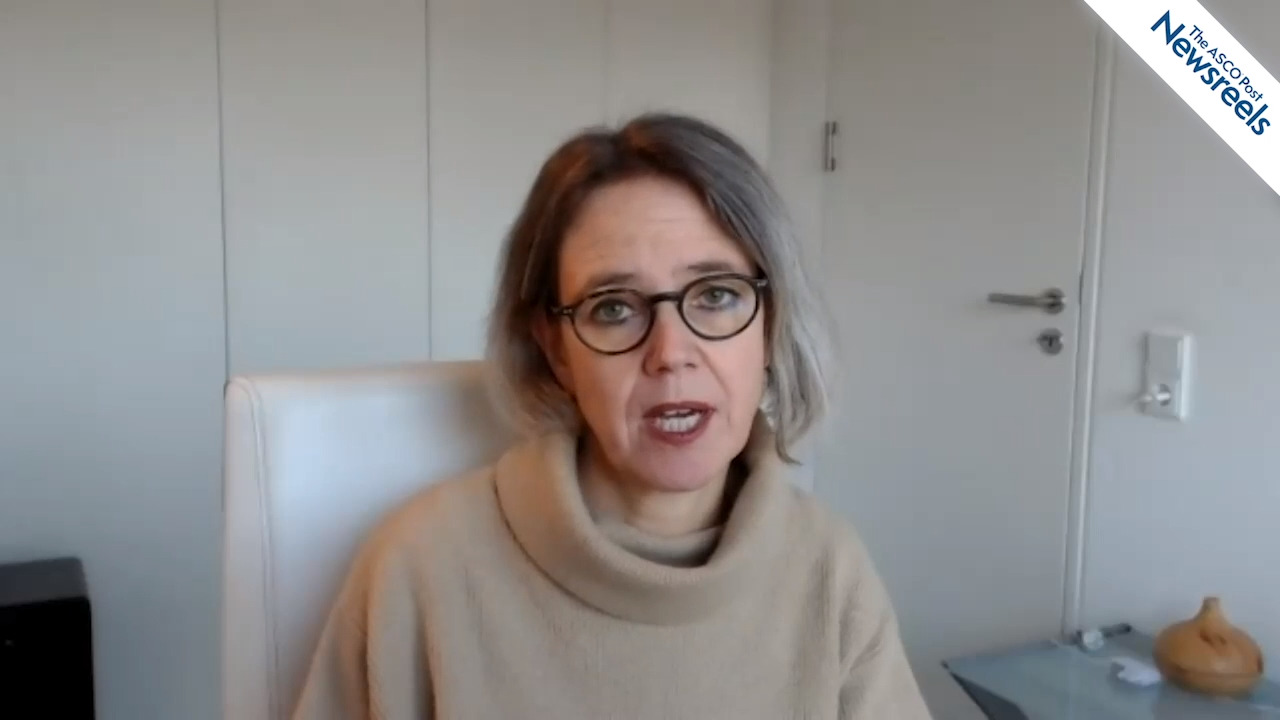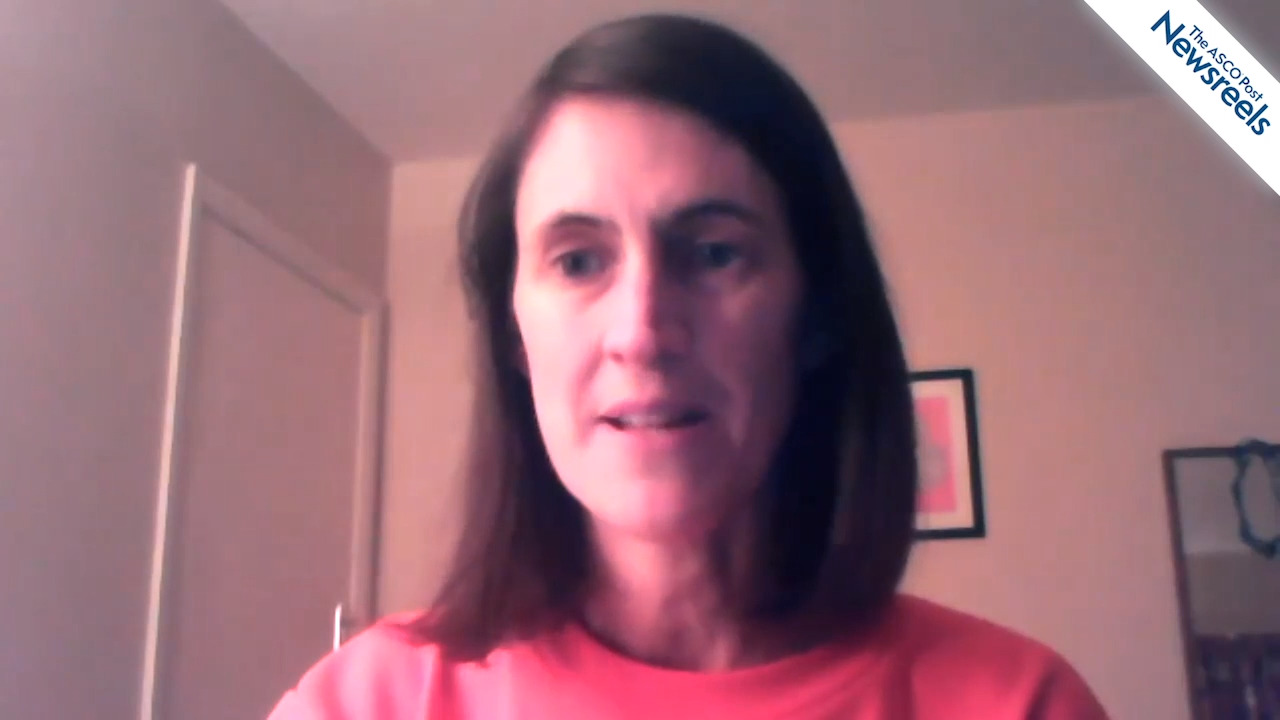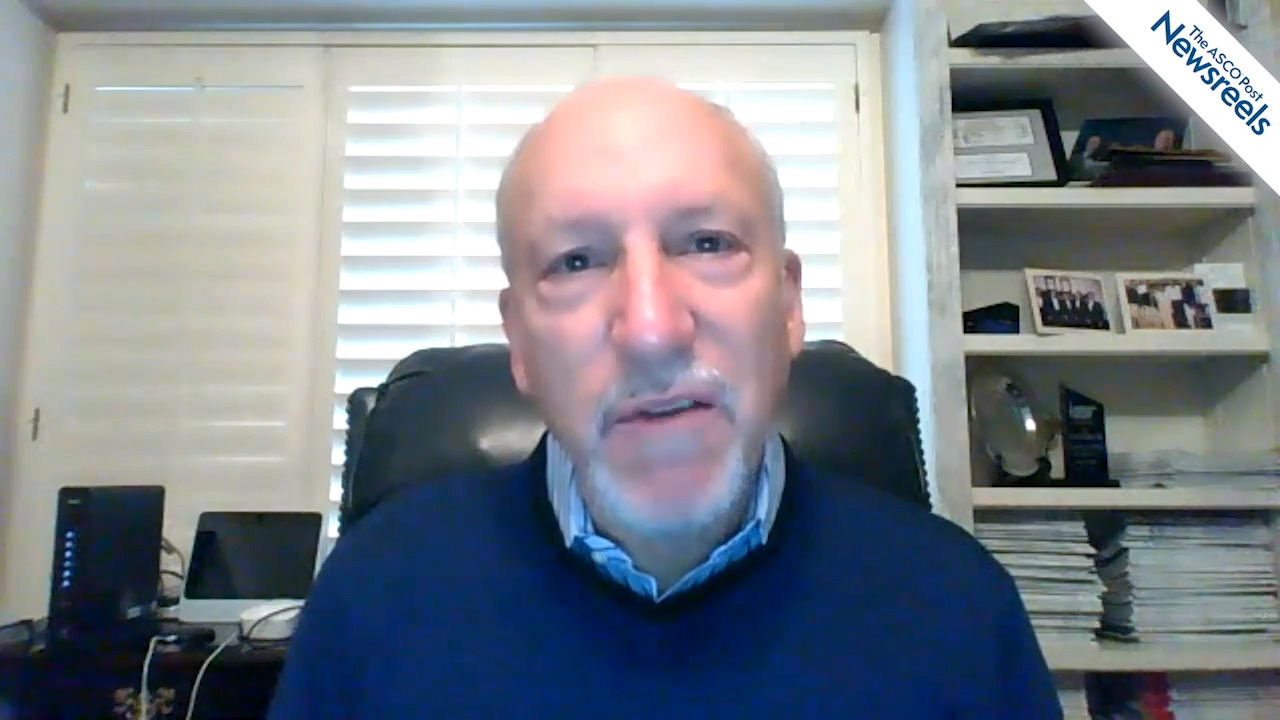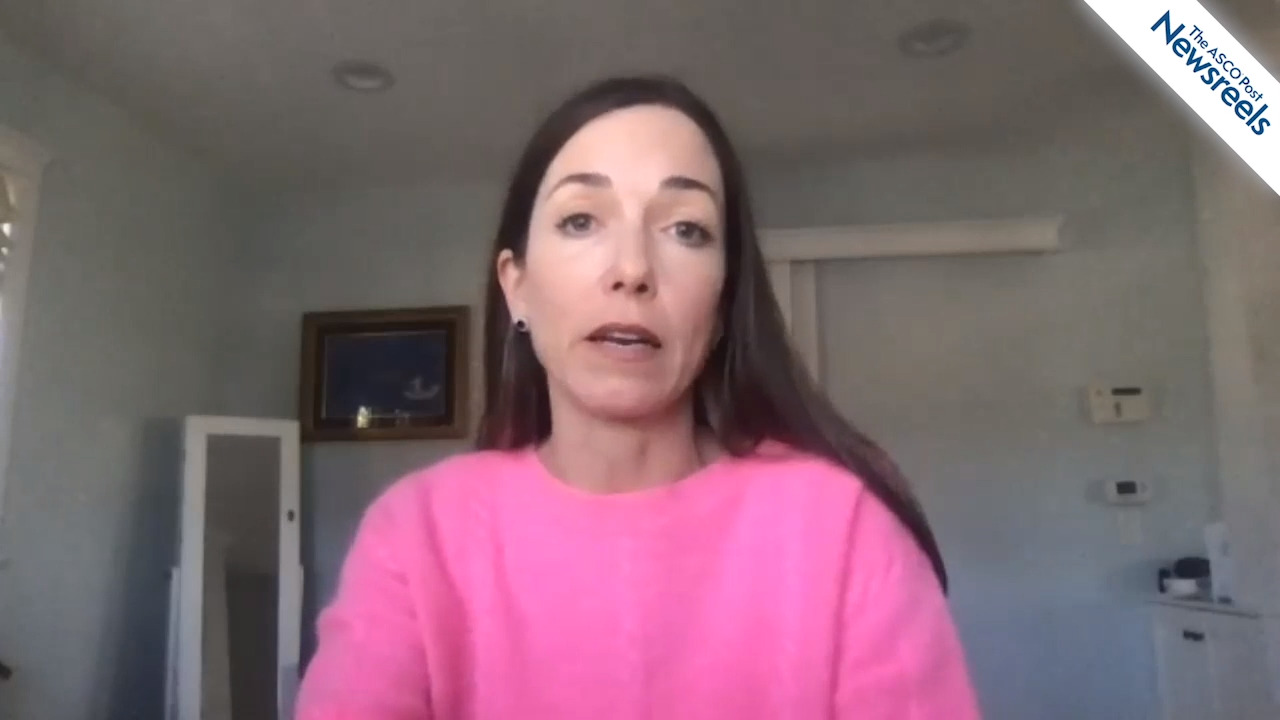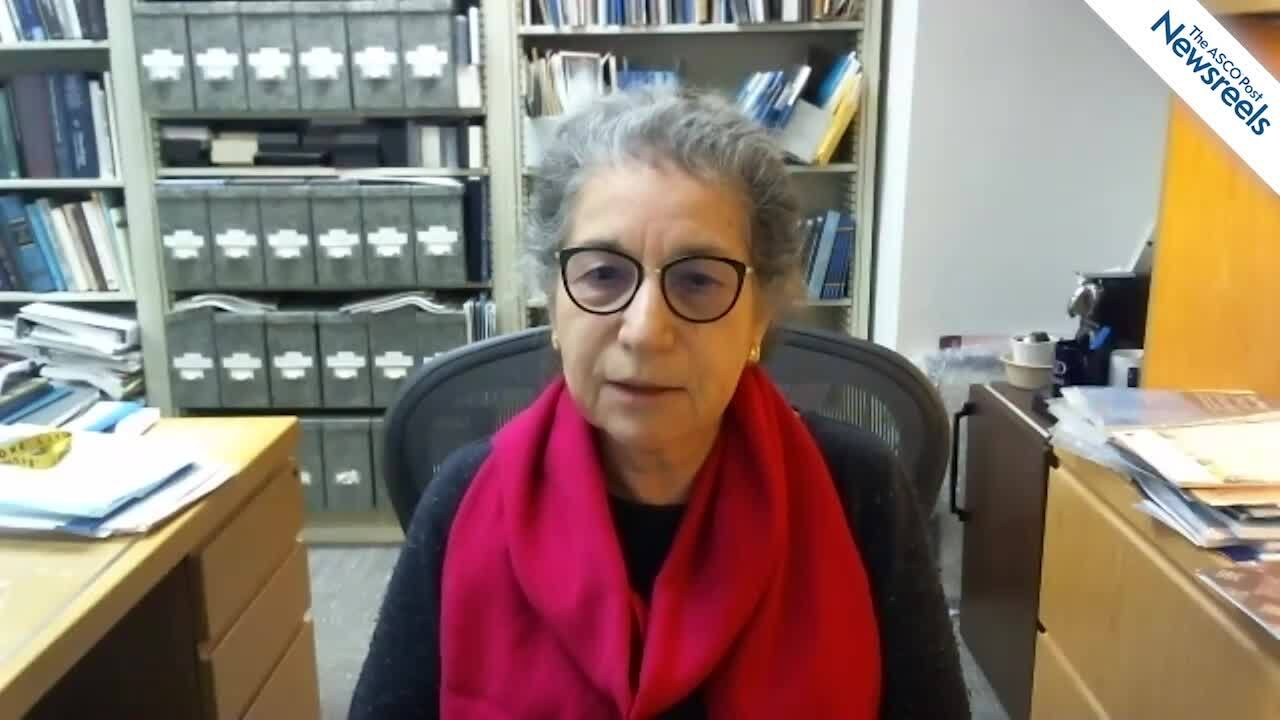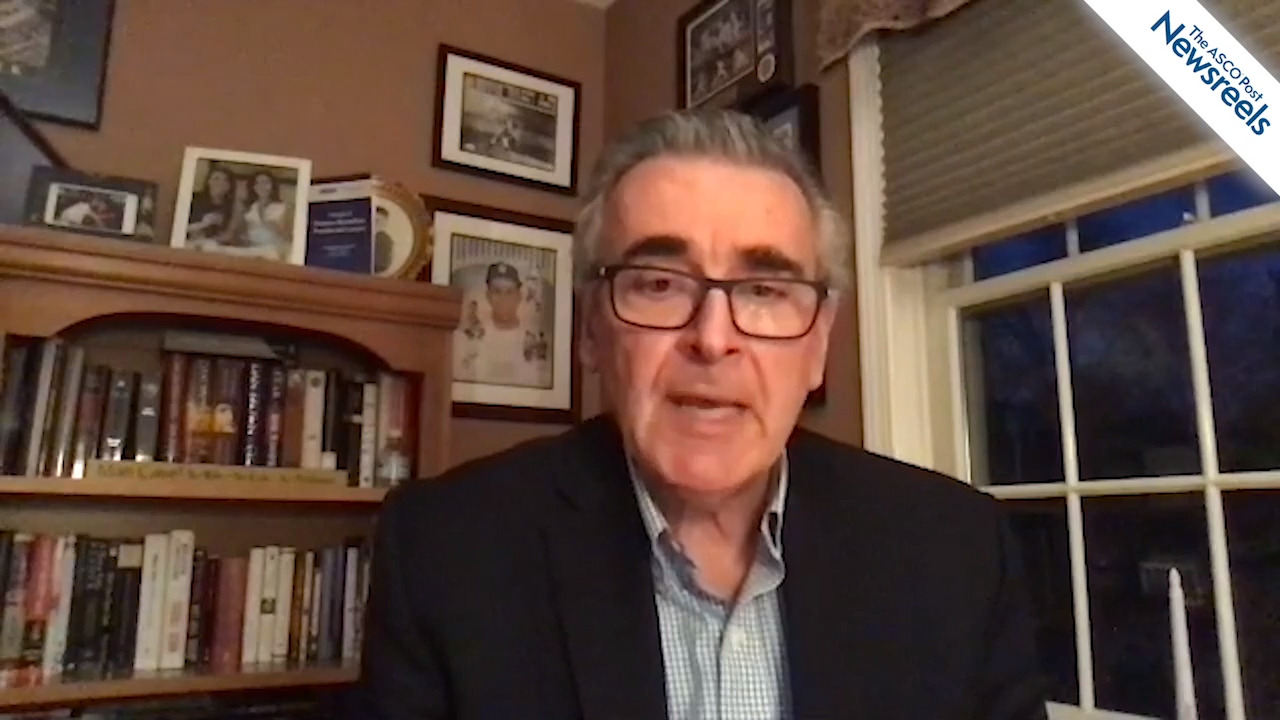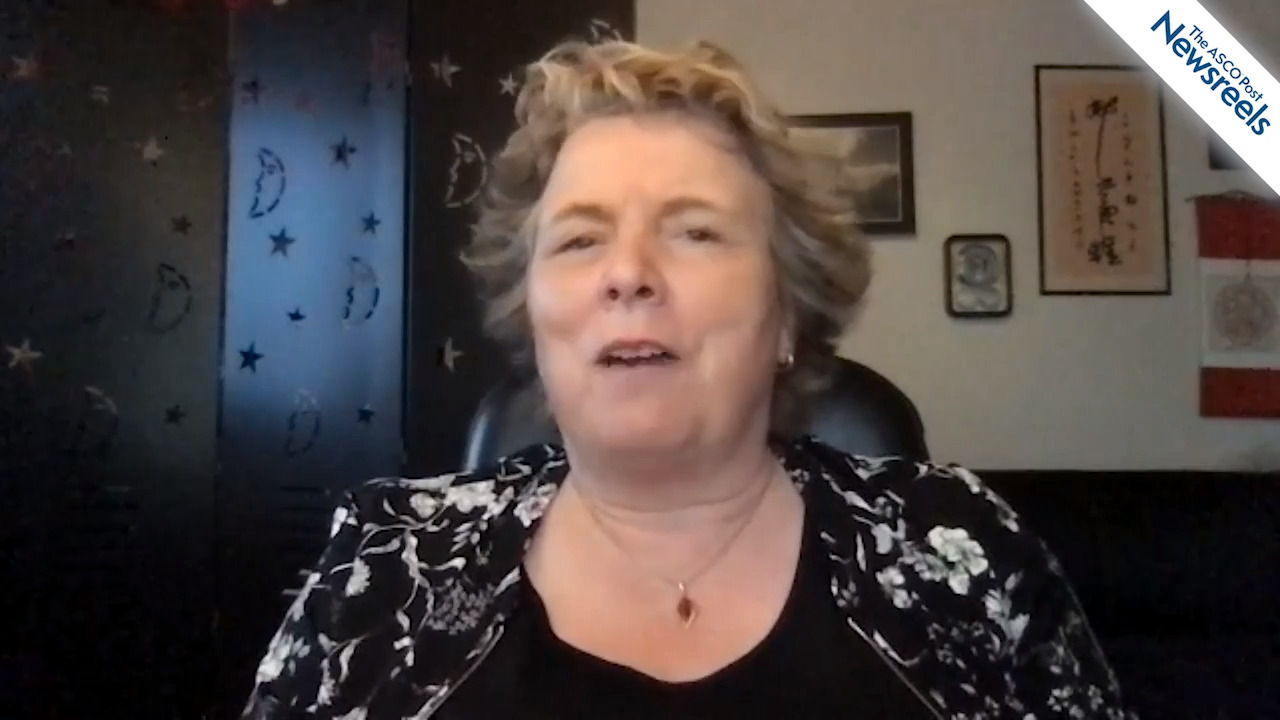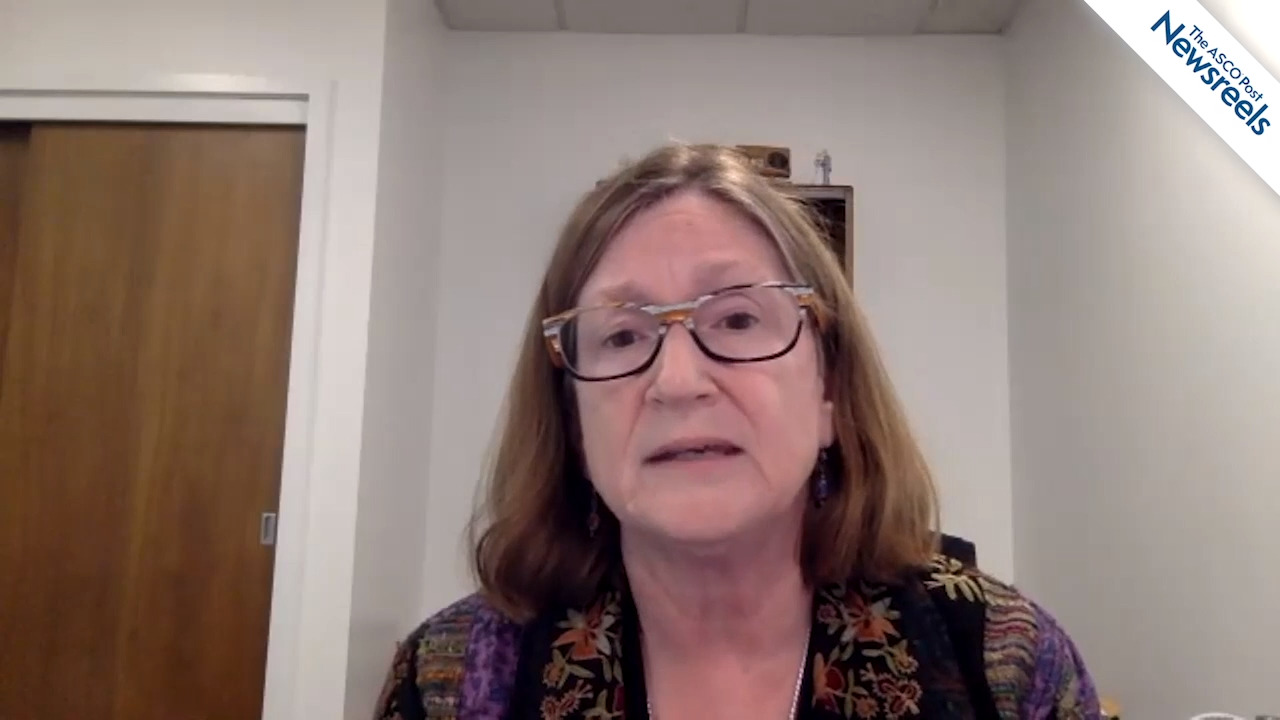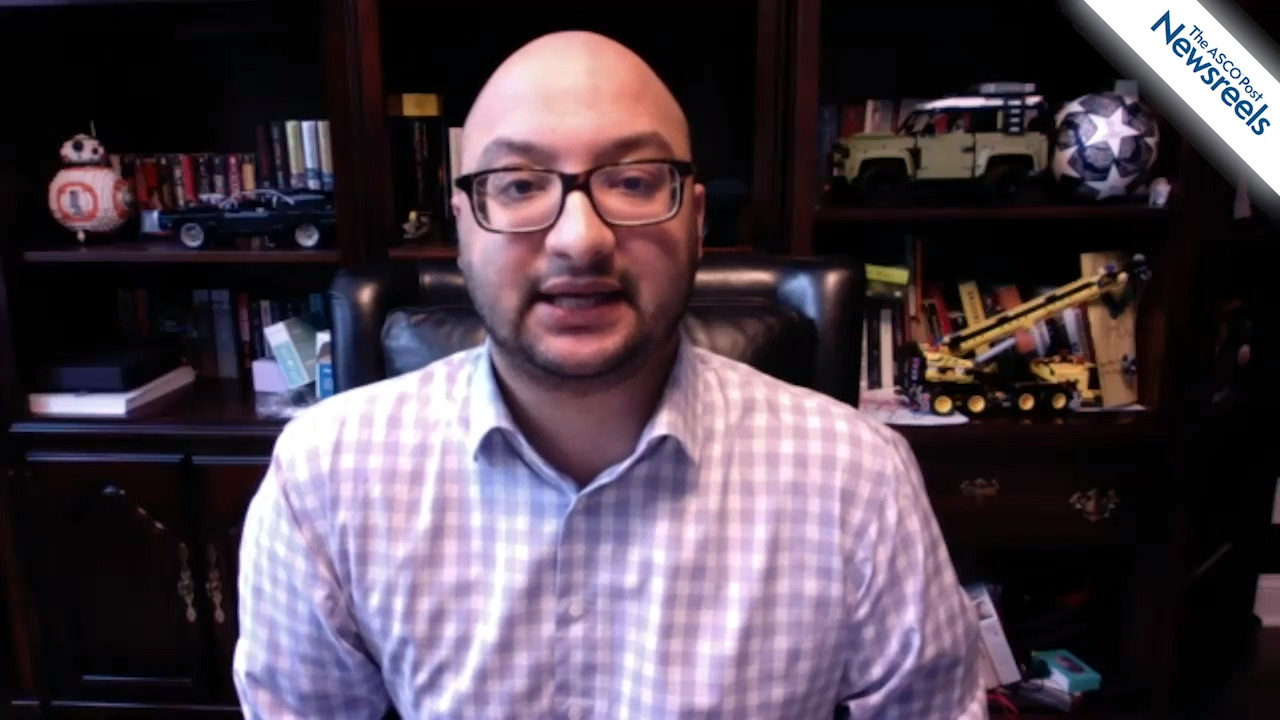2020 San Antonio Breast Cancer Symposium
Ann H. Partridge, MD, MPH, on ER+, HER2– Breast Cancer: More Effective Treatments Needed
Ann H. Partridge, MD, MPH, of Dana-Farber Cancer Institute, discusses results from the ALTERNATE trial on response to neoadjuvant chemotherapy in postmenopausal women with clinical stage II or III est...
Elizabeth A. Mittendorf, MD, PhD, on Her Plenary Lecture: Local Regional Management Following Neoadjuvant Therapy
Elizabeth A. Mittendorf, MD, PhD, of Brigham and Women’s Hospital, summarizes her plenary talk, which featured the uncertainties in treatment knowledge: excision of postchemotherapy calcifications; th...
Sibylle Loibl, MD, on HR+ HER2– Primary Breast Cancer: Palbociclib and Endocrine Therapy
Sibylle Loibl, MD, of the German Breast Group, discusses the first phase III results from the PENELOPE-B study of palbociclib combined with endocrine therapy in patients with hormone receptor–positive...
Joyce V. Lee, PhD, on Triple-Negative Breast Cancer: MYC as a Predictor of Treatment Response
Joyce V. Lee, PhD, of the University of California, San Francisco, discusses data that suggest the MYC oncogene may indicate whether a patient with triple-negative breast cancer will respond to immuno...
Roisin M. Connolly, MD, on HR+ Advanced Breast Cancer: Endocrine Therapy and Entinostat
Roisin M. Connolly, MD, of University College Cork, discusses phase III results from the E2112 trial, which showed exemestane plus entinostat did not improve survival in aromatase inhibitor–resistant ...
Lee S. Schwartzberg, MD, on HER2– HR+ Breast Cancer: Tesetaxel and Capecitabine
Lee S. Schwartzberg, MD, of the West Cancer Center, discusses phase III results from the CONTESSA study, which showed that an all-oral regimen of tesetaxel plus a reduced dose of capecitabine signific...
Sara A. Hurvitz, MD, on Triple-Negative Breast Cancer: Sacituzumab Govitecan and Chemotherapy
Sara A. Hurvitz, MD, of the David Geffen School of Medicine at UCLA, discusses phase III data from the ASCENT study of the antibody-drug conjugate sacituzumab govitecan vs chemotherapy in patients wit...
Patricia A. Ganz, MD, on Younger Breast Cancer Survivors: Managing Depression
Patricia A. Ganz, MD, of the University of California, Los Angeles, discusses study findings that showed mindfulness meditation and survivorship education may effectively reduce depression and related...
Joseph A. Sparano, MD, on HR+, HER2– Breast Cancer: Individualizing Prognosis and Predicting Treatment Success
Joseph A. Sparano, MD, of the Montefiore Medical Center and Albert Einstein College of Medicine, discusses the development and validation of a tool that integrates the 21-gene recurrence score and cli...
Nadia Harbeck, MD, on Early Breast Cancer: Endocrine Therapy After Preoperative Treatment
Nadia Harbeck, MD, of the University of Munich, discusses the first outcome data from the phase III ADAPT HR+/HER– trial, which combined both static and dynamic biomarkers to optimize the adjuvant the...
Debra A. Pratt, MD, on Time to Completion of Breast Cancer Treatment and Survival
In her recent study, Debra A. Pratt, MD, of the Cleveland Clinic, showed that when breast cancer treatment using any of three modalities takes longer than 38 weeks, it is associated with a decrease in...
Chirag Shah, MD, on Assessing DCIS Recurrence Risk
Chirag Shah, MD, of the Cleveland Clinic, discusses the impact of DCISionRT testing on radiation therapy recommendations for patients with ductal carcinoma in situ following lumpectomy. His study foun...
